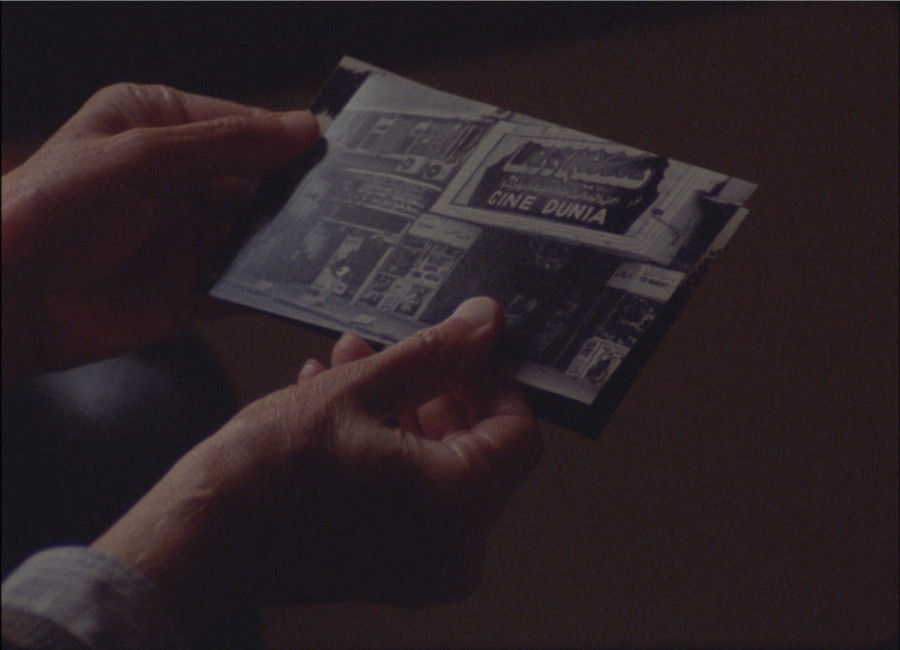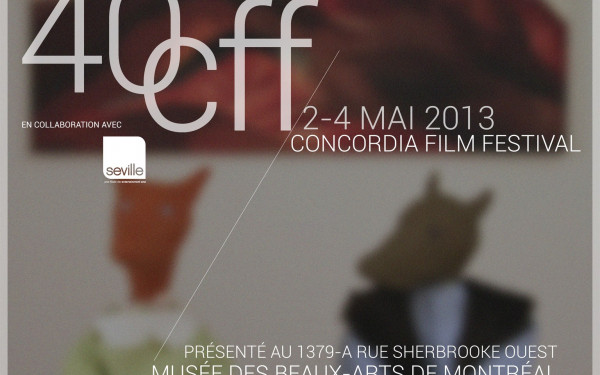The Festival du Nouveau Cinéma celebrates its 50th anniversary with a hybrid edition
One of Canada’s oldest film festival featured international independent films and digital creations
One of the first film festivals in Canada, the Festival du Nouveau Cinéma is celebrating its 50th anniversary with a hybrid edition presenting short films, feature films, and interactive projects.
The festival is showcasing 89 feature films and over 100 short films. In-person screenings ran from Oct. 6 to Oct. 17 while its online events and screenings remain available until Oct. 31.
“It has always been keen on broadening the horizons of the Montreal film scene by showcasing works from all over Canada and the world,” said Zoé Protat, the festival director. “We always support and put first new creators and voices that amplify questions that are very important in the world right now, like questions about our society and our history.”
FNC is committed to the exploration and development of new practices in cinema and new media. “The festival has always been about what's happening now and what’s happening in the future. We are always in the activity of trying to discover everything before other people: the new trends, the new directors, the new technologies,” said Julien Fonfrède, another festival program director.
The festival’s calling card is its extensive and diverse programming, consistently presenting high-quality and often hybrid and unseen works selected for their originality and innovation. “Discovery is the fuel of the Festival du Nouveau Cinéma,” said Protat. “We also have a very deep love for hybrid works by artists who merge different art disciplines such as a choreographer that makes a film or the relationship between photography and film or music and film.”

Just as the term “new cinema” is always evolving throughout the years, and although the FNC has also undergone many changes to keep up with the times, its mandate remains the same.
According to Protat, with the decades passing, the festival scene in Montreal has changed. FNC has grown and has become a bigger event open to bigger films and bigger names. “Five decades later we still have this deep love for new voices and new formal expressions,'' said Protat.
The festival featured Damascus Dream made by multidisciplinary artist Émilie Serri, a Concordia fine arts graduate.
Damascus Dreams is a poetic documentary essay where the filmmaker questions her relationship to Syria, her father’s country of origin. “The film became an excuse to start this dialogue with my dad,” said Serri.
Read more: The Canada China International Film Festival is back for a hybrid sixth edition
Read more: The LACUNA-LACUNE exhibition: where post-consumer waste merges with nature
“Montreal is my hometown and this is where I made the film. Being part of this festival and to be recognized by a festival like the FNC is an honour for me.” — Émilie Serri
The film blends together the filmmaker's father's memories, stories of Syrian refugees and her personal experience. “[I included] a lot of different types of imagery to reflect this hybrid identity ranging from home movies, that were my first evidence with my dad, to found footage, interviews, reenactments, archives, and mise en scenes done by the Syrian people,” said Serri.
“[Being selected by FNC] was a special opportunity for me to watch the film with my family and a lot of participants that had never seen the film,” said Serri. “Montreal is my hometown and this is where I made the film. Being part of this festival and to be recognized by a festival like the FNC is an honour for me.”
With 50 editions and a bright future ahead, FNC continues to shine a light on the importance of film festivals. “Film festivals have made films visible and accessible for a larger audience,” said Serri.
“Film festivals are not dead at all, they are more important than ever to support the artists and their works,” added Protat.






3_600_375_90_s_c1.jpg)
web_600_375_90_s_c1.jpg)